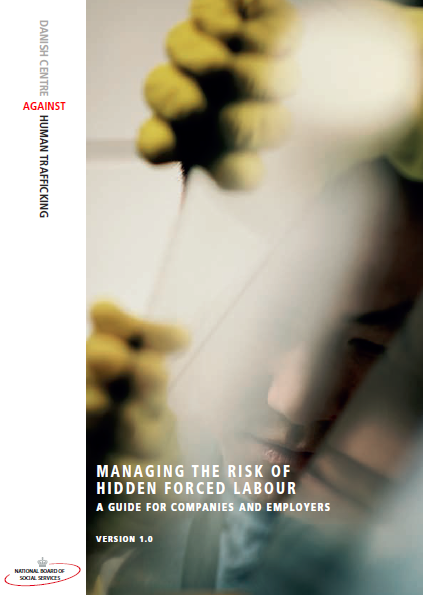These guidelines serve as a quick guide for companies and employers risking to become associated with forced labour. The guidelines have been prepared in consultation with a number of different stakeholders and are intended as an awareness, business risk management and practical prevention tool. They describe the risk of human trafficking for force labour and how best to avoid being associated with such cases unintentionally. Furthermore, they include checklists of a number of measures which may be taken by companies to reduce the risk of hidden forced labour.
The guidelines are based on a mapping of risk factors and interviews with employers and have been developed in dialogue with range of stakeholders including: the Agency for Labour Market and Recruitment, the Working Environment Authority, the Central Customs and Tax Administration, the Immigration Services, National Police, the Danish Business Authority and the United Federation of Danish Workers. Finally the Guide has been approved by Ministry of Children, Gender Equality, Integration and Social Affairs and the Ministry of Employment. It is important to note that the guidelines are tailor-made for the Danish labour market context and legislation.

